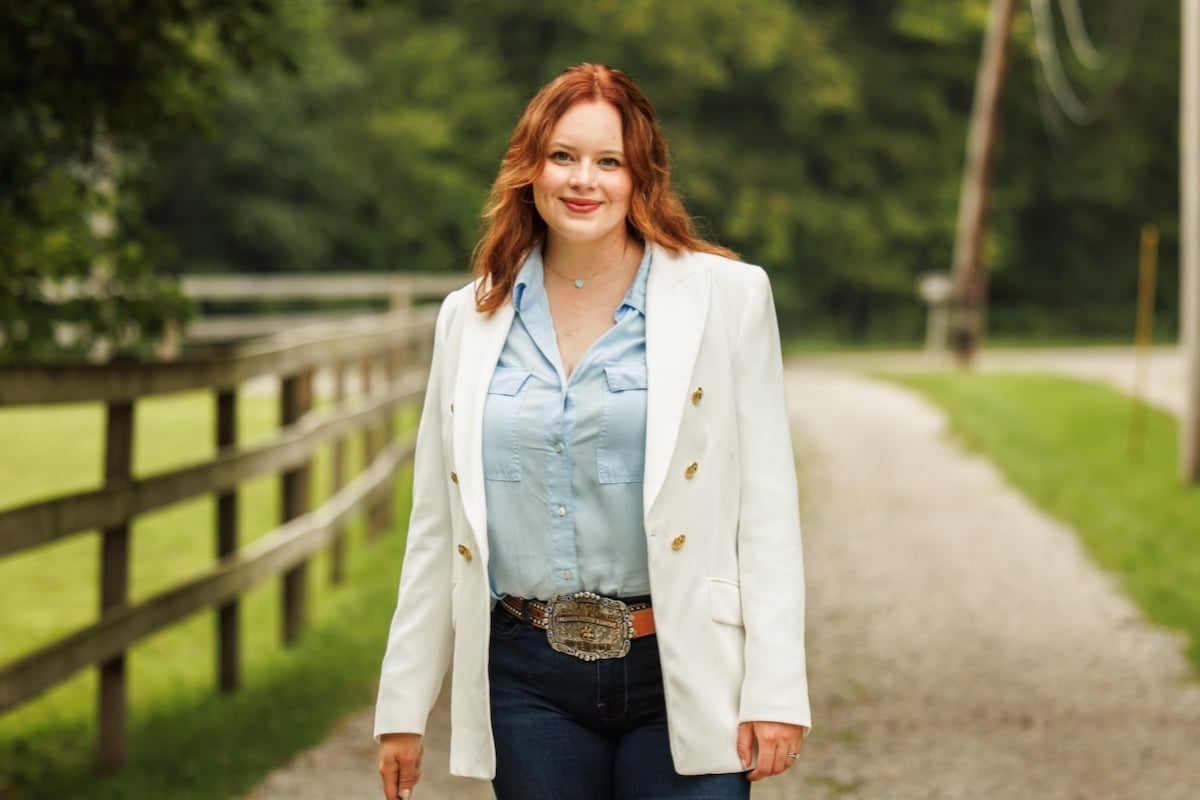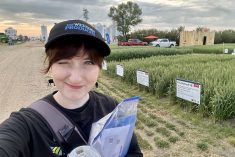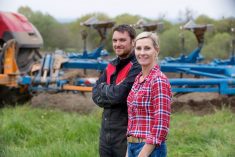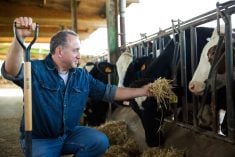In part four of our Making the Future series Country Guide spoke with Eugénie Officer from Hemmingford, Que. (Read part one here, part two here and part three here.)
Officer grew up on a small apple farm in southwestern Quebec. After studying history and agriculture at the University of Guelph, she joined Farm Credit Canada (FCC) and moved to Saskatchewan where she worked in marketing and lending roles. She later moved back to Quebec to project manage FCC’s AgriSuccess and Knowledge publications. That led to her current role in sales enablement which combines the knowledge of lending and sales with marketing. She is also contractual newsroom director for Canadian Western Agribition and writes a historical agriculture column for a farm magazine.
Country Guide: Why did you decide on a career in the agriculture industry?
Read Also

Part 4: Financial disagreements between farm siblings
A six-part series that looks at the challenges sibling conflict can have on the farm business and family business relationships.
Eugénie Officer: Agriculture was always a big part of my life. I showed horses and cattle, was heavily involved in 4-H, eventually sitting on the youth advisory committee and the 4-H Canada board, and I spent some of my teen years working on dairy farms and competing in livestock judging. I knew I wanted to be someone who helped bridge that gap, to show others the opportunity and passion that exists in this industry and help make agriculture feel like home for more people.
I wanted to find a role where I could combine communications, strategy and strong relationships to directly support producers. My current role at FCC brings everything together. I get to draw on my lending and marketing background to support our lenders by improving the tools and processes that directly impact the way they add value to customers.
CG: What is your perception of the Canadian ag industry today? What excites you about it?
Officer: What excites me most is how far the industry has come in the last 10 years, and the fact that producers are up to the challenges ahead of us. We’re at a point where technology, sustainability and innovation are intersecting, and producers are leading a lot of that change by being committed to doing the best they possibly can as stewards of the land, animals, their businesses and their communities.
There is space for people with so many different skill sets, from ag science and tech to sales, finance, communications and policy. What excites me, too, is the chance to be part of something that matters and to help others see how they can play a role in shaping the future of food, farming and rural communities — whether they have deep roots in agriculture or are just discovering the potential of this industry.
CG: What expectations did you have coming into the industry and how do they compare with your actual experience? As a young person coming into the ag industry, have you found it difficult to earn people’s trust and confidence, to show that you know what you are doing?
Officer: When I first began my career at FCC, I had the chance to work with some incredible managers and directors who created space for me to bring forward ideas I was excited about and lead projects that were outside of the norm. That trust early on really helped shape the work I wanted to do and gave me more confidence to lean into innovative thinking.
That said, in the broader industry, I do think young people, especially those in primary agriculture, sometimes must work harder to earn trust. But that challenge pushes you to be thoughtful, to listen well and to show up consistently, and those are qualities that build lasting credibility, no matter what your age.
In roles like lending, I saw firsthand how young producers often have to walk a fine line, bringing new ideas to the table while also proving they understand the realities and the heritage of the business. The great thing is, when you show up with a genuine desire to support and learn, I do see that most people make space for you.
CG: What are your personal career goals and what new ideas and fresh approaches do you have to help benefit agriculture?
Officer: I feel really grateful for the path I am on. I have been able to explore different areas of the business, in both Western and Eastern Canada and learn from some incredible leaders along the way.
Long term, I hope to step into leadership roles. That’s something I’m working toward by continuing to build my skill sets and actively learning from the people around me. I would say I am passionate about mentorship and building strong relationships. Those are the spaces where I feel I can grow and give back at the same time.
In terms of how I feel I could best personally support the sector, encouraging young people to develop their careers in this space is one way. In my current role, I’m trying to lean into making others feel heard, supported and help them succeed. If I can continue to develop those skills and use them to support my colleagues and the producers they serve, I will feel like I am making a meaningful contribution.
CG: How do you feel about the future of the ag industry?
Officer: I see a ton of potential in agriculture right now. It is foundational to any modern society, yet still largely overlooked as an exciting career path.
One of the biggest challenges we face is visibility and attracting a diversity of thinkers into the industry. A lot of young people simply don’t realize how many different, meaningful career paths exist in agriculture as a whole, and the fact that you don’t have to study ag science or enter primary production to make a meaningful difference in the sector.
CG: If one day your children came to you and said they were considering a career in ag, what area of the industry would you encourage them to look at? Where do you see the best opportunities?
Officer: I think the future of agriculture is full of possibility. There are so many roles that don’t exist yet and that makes it exciting.
If someone from future generations told me they were considering a career in ag, I would encourage them to stay curious and open-minded. There is no one path, and the best opportunities often show up where your interests, values and the industry’s needs intersect.
If young people care about contributing to food security, the strength of rural communities, and care deeply for animals and eco systems, they will find a place in this industry where they can grow and contribute.
















